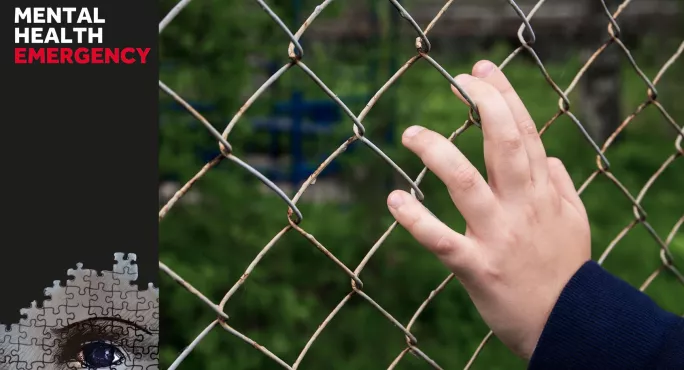- Home
- Exclusive: Self-harming pupils turned away four times in CAMHS crisis
Exclusive: Self-harming pupils turned away four times in CAMHS crisis

The provision of child and adolescent mental health services (CAMHS has been cut back so much that, in some cases, only those with the ability to pay are receiving the right level of help in what is a “disgraceful and disgusting” situation, it is claimed.
Pupils who are self-harming, including cutting themselves and taking overdoses, are being turned away up to four times before they receive help, it is claimed.
Kathryn Scott, director of policy at the British Psychological Society, said the situation was “worse than ever” with more and more children suffering mental health issues as a result of social media and exam pressure, and that the help available was based on “a postcode lottery.”
And MP Lisa Cameron (SNP), who is chair of the All-Party-Parliamentary-Group on Psychology said families were “at crisis point” and that further resources were “urgently needed.”
Read: ’The state of Camhs is a national disgrace’
Listen: Professor Tamsin Ford on the impact schools can have on young people’s mental health
News: Pupils attempt suicide after waiting 10 months for help
The “rapidly deteriorating situation” has been laid bare by the former clinical lead of a CAMHS team in the north-west of England who said the number of clinical psychologists working for her over the past five years has been cut from 25 to just 1.5, and that her own post has been replaced with two unqualified people - in a pattern that was being replicated across the country.
Camhs ‘in a pressure cooker’
She said: “We had three or four times more referrals than we could manage anyway before this [the cuts] all started. It’s like a pressure cooker.
“Children who had previously been seen are no longer being seen and the threshold for being seen goes up. Now they’re turning away kids who are self-harming three or four times before they’re getting any help - and then they might not even get the professional help they need.”
The woman, who does not wish to be named, said there had been three suicides in the trust area since the cuts started - when there hadn’t been a suicide “for years”, but added that she couldn’t say this was directly linked to the cuts.
She said: “Suicide is just the tip of the iceberg. The underlying problems are that you have young people growing up with long-term mental health problems.”
Unqualified people are increasingly treating children with conditions such as trauma, depression, anxiety, eating disorders, and those who had been abused (including sexually, physically and emotionally), she said.
“It’s like needing to have your appendix out yet being referred to a person with no medical training to do the operation,” she said.
Mental health services ‘overstretched’
She said teenagers were being kept on mental health wards in hospitals for weeks at a time without any education provision, while clinical psychologists made redundant from the public sector were now working privately, meaning it was increasingly the case that only pupils from wealthy backgrounds could get help in a situation which was “disgraceful and disgusting.”
Case studies reported by Tes include a Year 6 pupil with autism who was self-harming who had to wait seven months for support - before his family were told it was more than 200 miles away. And in January Tes reported a teacher’s warning that pupils who were referred to Camhs for self-harm in Cumbria had attempted suicide after waiting at least 10 months to be seen.
Ms Scott told Tes: “The services children need to treat mental health conditions and to prevent them from developing are under extreme pressure, creating a perfect storm. For the first time ever there are some local authorities without any educational psychology service.
“The services that do exist are not always joined up, so any reductions in one part of the system will show up as increased demand elsewhere.”
Ms Cameron added: “Children with mental health issues are languishing on waiting lists and they and their families are driven to crisis point.”
The British Psychological Society has published a briefing paper which calls on Ofsted to assess mental health provision in schools.
An NHS England spokesperson said: “The NHS Long Term Plan is actually investing in earlier support through schools and FE colleges, testing new 4-week waiting times and expanding community services - while more children and young people are being seen and 22 per cent more staff in services than five years ago.
“By 2023/24 an extra 345,000 children and young people will get help every year, backed by annual funding increases but everyone has to start taking responsibility, including social media giants, to help young people maintain good mental health, rather than let problems build up to the point that they need specialist help from the NHS.”
The DfE was contacted for comment.
Keep reading for just £1 per month
You've reached your limit of free articles this month. Subscribe for £1 per month for three months and get:
- Unlimited access to all Tes magazine content
- Exclusive subscriber-only stories
- Award-winning email newsletters



